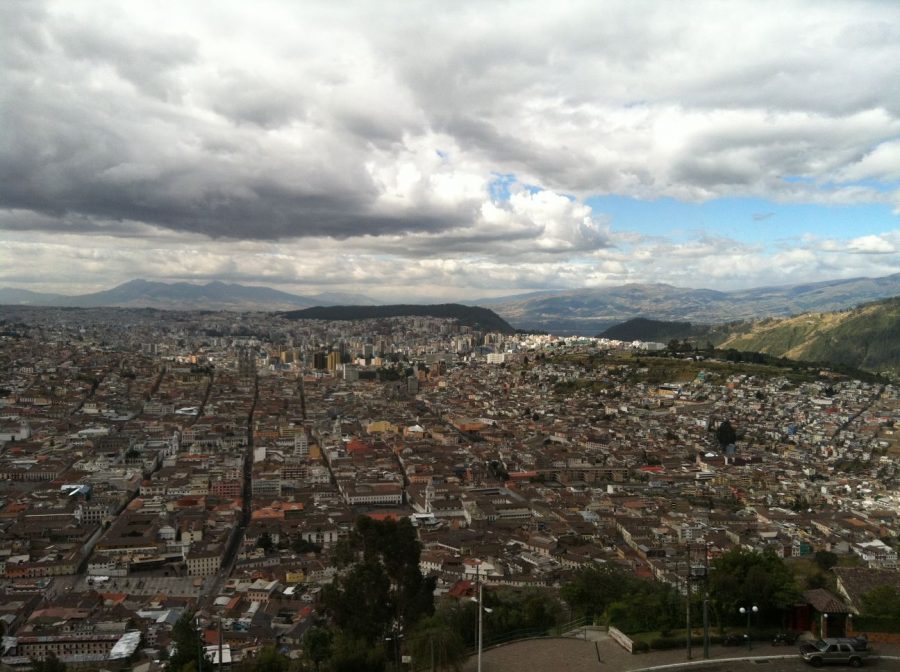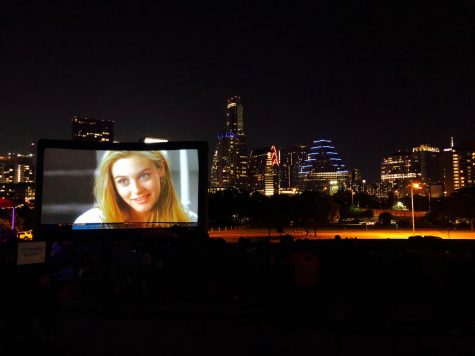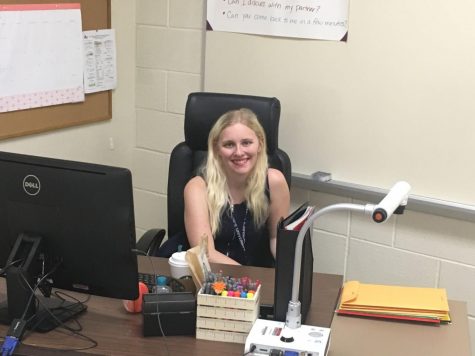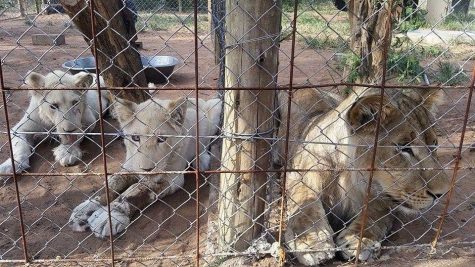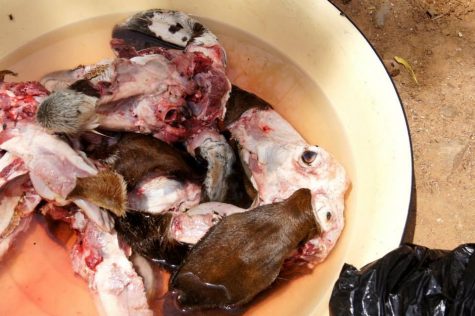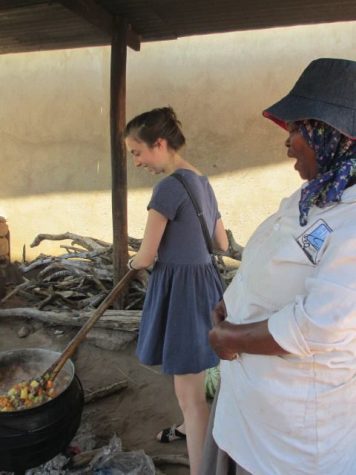QUITO: First days in Ecuador
This semester I’m going to be diving deep into Ecuadorian culture. I’ve directly enrolled in a South American university called La Universidad San Francisco de Quito—where I am taking a mix of classes in Spanish with Ecuadorian and other international students. I’m living in the country’s capital, Quito, with an Ecuadorian friend of mine who lived at my house for a year while I was in high school. I plan on exploring what this country has to offer and taking advantage of new opportunities. I expect to make culture mistakes and struggle with my Spanish, but I am here to learn, grow and take on my world.
People having been asking me if I think or dream in Spanish, but honestly this is the first time in my life where I am mostly thinking with visuals instead of words. I don’t know if this is normal. Perhaps, it’s some kind of stepping stone in learning a new language.
I also have large periods of time where I realize that I’m not thinking about anything, and in the week and a half that I’ve been here I can’t recall one dream.
I largely attribute this unprecedented phenomenon to my brain being on complete and utter overload and truly exhausted. My world is suddenly in Spanish, and I’m trying to soak up everything. I want to observe and understand what it means to be Ecuadorian, and eventually, hopefully, truly embody that spirit while I am here.
Most people that I talked to back home knew very little about Ecuador, it was actually rare to find someone who could even identify the country on a map (South America— bordering Peru and Colombia for those wondering). However, people did assume that this country was less developed than home, which is true but nuanced.
Although Ecuador does not have the extensive infrastructure that we enjoy in the U.S. and poverty is a real, daunting issue, I’m experiencing a crossroads of social classes and culture that I didn’t previously consider.
I attend the first-ranked university in Ecuador and the most expensive private university in Quito. As a full time student, it costs $5,500 per semester. While this number seems almost laughable in comparison to the tuition rates back at home, it’s important to note that the average Ecuadorian salary is around $300 per month and the access to scholarships, loans or grants are limited by comparison.
Anyone can attend college in Ecuador. Public higher education is free, but from what I’ve heard the quality at these institutions is questionable at best.
What I’m trying to get at is although I’m in a “developing country” I’m not usually around people who are struggling with problems that plight countries like Ecuador. I see a thriving middle and upper class, and that makes me feel hopeful for the economic development of Ecuador. The university that I attend is bursting at the seams with students. It has had an increase in enrollment each semester in the last several years. The campus does not have any more space to grow, so many classes are taught in conference rooms and movie theaters at the mall across the street— this mall is the most sophisticated, fancy mall I’ve ever seen.
However, I think it’s important for me to remember that my Ecuadorian experience is more of an outlier for Ecuadorians than a norm. Through my program, we have eaten at restaurants intended for foreign diplomats, received guided tours of the city, and learned about the country’s rich and diverse culture. Right now I’m writing this blog on the nicest computer I’ve ever used. It’s twice the normal size, includes the newest software and is a touch screen, but this isn’t the country that millions of Ecuadorians know.
Ecuador seems to be in an interesting economic state. It is rightfully classified as a developing country in the true sense of the word— it is not merely subsisting like I believe many other countries are. Infrastructure is improving, as is access to health care and education and the government is taking measures to make the country safer in many different ways.
I’m here in Ecuador until December 23, and by that date I hope to speak Spanish like a pro and ama la vida (Ecuador’s slogan).


